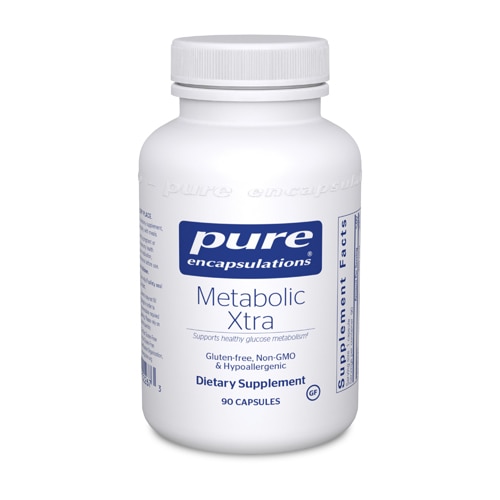[vc_row][vc_column][vc_column_text]It's a reality we all face, as we age, natural shifts occur in our bodies. While these changes are a typical part of aging, they can sometimes also lead to an increased risk of developing type 2 diabetes. Many older adults face a higher risk of developing diabetes. An estimated
33% of adults aged 65 or older have diabetes, sometimes without even knowing it.
So, what exactly is diabetes? It's a chronic metabolic disorder where the body either doesn't produce enough insulin or can't effectively use the insulin it produces, leading to high blood sugar levels. This can have long-term consequences, making it a significant health concern, especially as our bodies naturally become a little less resilient with age.
Let’s dive into some of the common risk factors associated with developing diabetes, along with some steps we can take to help reduce the risk of developing diabetes.

Diabetes Risk Factors: Why Risk Increases With Age
Several physiological changes associated with getting older can directly impact our body's ability to regulate blood sugar levels.
One factor is the gradual loss of muscle mass, commonly referred to as sarcopenia. Muscle plays a key role in regulating blood sugar, acting like a sponge that soaks up sugar from the bloodstream. As we lose muscle mass, this "sponge" becomes less effective, contributing to insulin resistance, where our cells no longer respond as well to the insulin our body produces.
In addition to muscle loss, we often see an increase in abdominal fat as we get older. This isn't just about how we look in a swimsuit. This type of fat that surrounds our organs is called visceral fat. Visceral fat is a problem because it releases hormones and other substances that disrupt normal metabolic function and can worsen insulin resistance.
A possible reduction in the cells in our pancreas that produce insulin is another concern as we age. Over time, their ability to produce and release enough insulin to regulate blood sugar levels can decrease, especially when faced with increased insulin resistance.
The cumulative effect of lifestyle choices over time also plays a crucial role in our risk of developing diabetes. Habits related to diet, physical activity, sleep and even
stress management can have a long-term impact on our health. Years of a sedentary lifestyle, a diet high in processed foods and sugar, lack of
sleep and chronic stress can all contribute to the development of insulin resistance and possibly even type 2 diabetes as we age.
Key Diabetes Risk Factors to Consider
While the aging process itself brings about changes to our bodies that increase the risk of diabetes, several other factors can also come into play. Being aware of these key risk factors and taking proactive steps can make a significant difference in maintaining your health and helping to prevent diabetes as you get older.
Weight gain and obesity
Excess weight, particularly around the abdomen as previously discussed, is strongly linked to insulin resistance. Our metabolism can naturally slow down with age, meaning we may burn fewer calories at rest, which makes weight management more challenging and increases the likelihood of weight gain if dietary and activity habits remain the same.
Family history
Genetics play a significant role in the possibility of developing type 2 diabetes. Your risk increases if you have a close relative, such as a parent or sibling, with diabetes. While this is a non-modifiable risk factor, it's something to keep in mind.
Physical inactivity
Exercise is a powerful tool for maintaining a healthy weight and controlling blood sugar levels. Regular physical activity improves insulin sensitivity, helping your body to use insulin more effectively. It also aids in weight management by burning calories and building muscle mass. As we age,
mobility limitations might make staying active more challenging. It is important to find low-impact activities such as
water aerobics, walking or chair exercises to continue to engage in. It is also recommended to regularly include
strength training into your exercise routine as you age.
Unhealthy diet
Long-term dietary habits have a significant impact on our metabolic health. A diet consistently high in processed foods, sugary drinks and unhealthy fats can contribute to weight gain, insulin resistance and
inflammation, all of which increase the risk of diabetes. Aim to eat a
balanced diet rich in whole, unprocessed foods, such as fruits, vegetables, whole grains, healthy fats and lean proteins.
High blood pressure and high cholesterol
Cardiovascular risk factors such as
high blood pressure and high cholesterol often go hand-in-hand with an increased risk of developing type 2 diabetes. These conditions can damage blood vessels and impair overall metabolic health. Unfortunately, the prevalence of high blood pressure and high cholesterol tends to rise with age as well, making it even more important to monitor and manage these conditions.
Prediabetes
Prediabetes is a condition where blood sugar levels are higher than usual, but not yet high enough to be diagnosed with type 2 diabetes. It often has no noticeable symptoms, however it significantly increases your risk of progressing to diabetes. Recognizing prediabetes through blood sugar testing, especially for older adults, is very important. Lifestyle changes at this stage can often prevent or delay the onset of type 2 diabetes.
Certain medications
Some medications commonly prescribed to older adults for various health conditions can increase blood sugar levels as a side effect. This doesn't mean you should stop taking prescribed medications, but make sure to have an open conversation with your doctor about all the medications you are taking and their potential impact on your blood sugar. They can monitor your levels and make adjustments if necessary.
Gestational diabetes history
If you were diagnosed with
gestational diabetes during a pregnancy or gave birth to a baby larger than 9 pounds, even if it was many years ago, you have a higher long-term risk of developing type 2 diabetes.
Proactive Steps for Reducing Diabetes Risk
Although the risk of developing type 2 diabetes rises as we age, it's important to remember that this increased risk does not mean you are destined to develop diabetes.
While some risk factors such as age or genetics can’t be changed, many can be impacted by lifestyle choices. Keep the following tips in mind to help prevent or reduce the risk of developing diabetes.
- Attend regular check-ups with your healthcare provider
- Maintain a healthy weight by eating a balanced diet and practicing portion control
- Include plenty of fruits, vegetables, whole grains, healthy fats and lean proteins in your diet
- Limit processed foods and sugary drinks
- Incorporate regular physical activity into your routine
- Manage blood pressure and cholesterol levels
- Aim for 7-8 hours of sleep per day
- Incorporate regular self-care (e.g., meditation, yoga, hobbies) into your routine to manage stress proactively
- Be aware of the signs and symptoms of diabetes and reach out to your doctor with any concerns
In Summary
While an increased risk of type 2 diabetes is possible as we age, it's not inevitable. You can take proactive steps by understanding key risk factors. Regular check-ups, maintaining a healthy weight, eating a balanced diet, engaging in consistent physical activity, managing existing health conditions, prioritizing sleep, managing stress and being aware of diabetes symptoms are important strategies to keep in mind. Above all, empowering yourself with this knowledge and making informed choices can significantly reduce your risk and promote a healthier future.[/vc_column_text][/vc_column][/vc_row][vc_row][vc_column][vc_text_separator title="Featured Products" border_width="2"][vc_row_inner equal_height="yes" content_placement="middle" gap="35"][vc_column_inner width="1/3"][vc_single_image image="185342" img_size="full" alignment="center" onclick="custom_link" img_link_target="_blank" css=".vc_custom_1749493977760{padding-right: 7% !important;padding-left: 7% !important;}" link="https://www.vitacost.com/rxsugar-gluten-free-protein-cereal-pro"][/vc_column_inner][vc_column_inner width="1/3"][vc_single_image image="185341" img_size="full" alignment="center" onclick="custom_link" img_link_target="_blank" css=".vc_custom_1749493996910{padding-right: 7% !important;padding-left: 7% !important;}" link="https://www.vitacost.com/now-foods-better-stevia-organic-liquid-sweetener-8-fl-oz"][/vc_column_inner][vc_column_inner width="1/3"][vc_single_image image="185340" img_size="full" alignment="center" onclick="custom_link" img_link_target="_blank" css=".vc_custom_1749494007411{padding-right: 7% !important;padding-left: 7% !important;}" link="https://www.vitacost.com/nature-made-diabetes-support-pack-30-days"][/vc_column_inner][/vc_row_inner][/vc_column][/vc_row]





